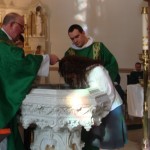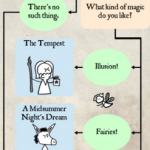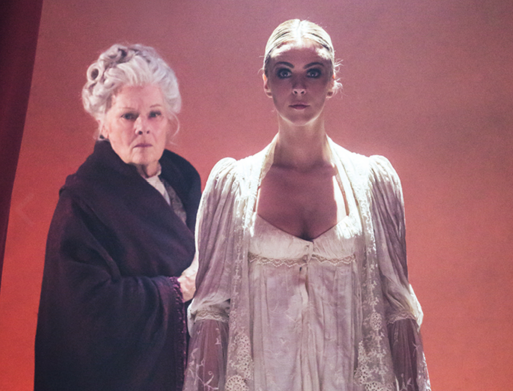In the run-up to my reception into the Catholic Church, I tried to talk a little about the process of conversion and the Christian faith in the language I’m most fluent in: the lyrics of Broadway musicals.
- “Reach out your hand, and see what it gets you” – The song is from Stephen Sondheim’s Anyone Can Whistle, and the Gospel reading is from one of the Scrutiny masses in Lent. I’m contrasting Bartimaeus, the man born blind, with Nurse Fay Apple from the show. Both make themselves vulnerable and receive new vision, that’s impossible to give up, but hard to accept.
“But what I found most affecting was the moments right before Bartimaeus opened his eyes. Walking forward in anticipation and encountering someone who’s already enough to overload the senses you’ve got, before you can ask for any others to be dazzled by.”
- “In a world of wondering, suddenly you know” – When a classmate sang “How Glory Goes” from Floyd Collins, I was still an atheist, but it was the first time I found prayer affecting or had any glimpse of what the point of talking to an omniscient God might me.
“God was giving Floyd the words he needed to be able to reach out at all. And instead of the sadness I would have expected the actor to convey, his God seemed to feel something more like delight. The actor’s God wasn’t primarily occupied with Floyd’s predicament, he was wholly consumed with Floyd. The actor’s eyes crinkled up with amusement at the metaphors that came to Floyd. There was a profound sense of intimacy and recognition. It pleased God to hear Floyd’s prayer and to pray with him, because the prayer was so utterly Floyd, and Floyd would remain Floyd in this moment and after his death. His leg was crushed, but his self was alive and shining.”
- “No one can be what he wants me to be” – In Man of La Mancha, Don Quixote is a holy fool, and his prophetic demands put an impossible strain on Aldonza, since he calls her to be more than she is, but doesn’t have the strength to redeem her.
Christ calls us Dulcinea already, and rebukes us for clinging to ‘Aldonza’ in our fear. We’ve already been offered the power to be what we ought to be, but, moment by moment, we decline to exercise it or acknowledge it. We couldn’t possibly be so beautiful or so strong. Better to stay small on the sidelines than acknowledge every moment we’ve spent shirking til this point. The first ‘Amen’ is an acknowledgement that we hadn’t said it until now.

















